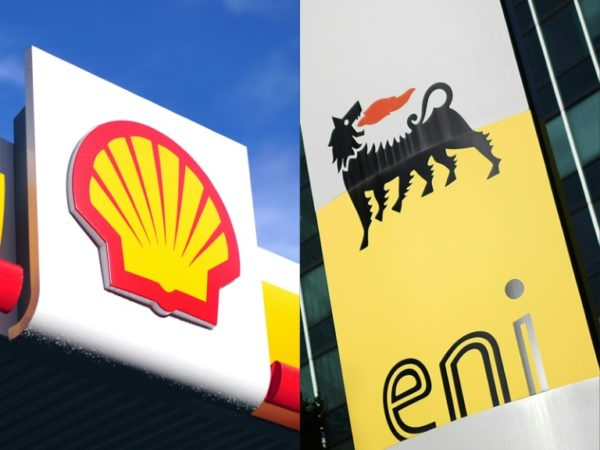Italian prosecutors have expressed dissatisfaction about lengthy delays in obtaining evidence they have requested from Switzerland in the criminal charges against Royal Dutch Shell and Italy’s Eni with regard to the controversial Oil Prospecting License (OPL 245) otherwise known as Malabu Oil block.
The oil firms and their executives are currently facing criminal charges for paying $1.1 billion in bribes to secure the purchase of the oil licence in 2011.
Italian prosecutors have decried the continued delay from Swiss authorities and had in April written to the Geneva prosecutors’ office, describing their three-year wait for documents to be handed over by Swiss authorities as “unprecedented”.
Reuters reported yesterday that Swiss police found the documents in a briefcase they seized in April 2016 in an inquiry unrelated to the corruption case, and the source said Milan prosecutors believed the documents could be vital to their prosecution of Eni and Shell.
But Italy’s request for the documents to be handed over has been blocked by Swiss courts after repeated legal challenges by the owner of the briefcase, Nigerian lawyer Emeka Obi, who was charged alongside Eni and Shell executives in the graft case, the newswire reported.
In September 2018, Obi was convicted of corruption and sentenced to four years in jail by a Milan judge in a fast-track trial, though he has appealed, remains outside Italy and his lawyer continues to pursue legal action in Switzerland to block Italy’s request.
The Geneva prosecutors’ office said in a statement to Reuters that it had spared no effort to cooperate with Italy over its request, adding the Swiss judicial process was long and involved delays that it admitted could cost precious time.
Milan prosecutors have an understanding of the contents of the documents and believe they would strengthen their case against defendants in the Nigeria graft trial, Reuters quoted the source to have said.
They hope their letter will be passed onto the Swiss Federal Penal Tribunal in Bellinzona which is considering which documents can be passed to Milan prosecutors. The tribunal’s eventual ruling is also subject to appeal.
The OPL 245 is believed to be one of the biggest untapped oil resources in Nigeria with reserves estimated at nine billion barrels.
A former Minister of Petroleum, Dan Etete, had used his position to allocate the lucrative oil prospecting license to Malabu Oil and Gas, a company he had interest.
The oil block licence was revoked in 2001 by the then President Olusegun Obasanjo and awarded to Shell, without a public bid.
Malabu headed to court, and the ownership was reverted to it in 2006 after it reached an out-of-court settlement with the federal government.
Shell, which had commenced arbitration against Nigeria over the oil block, had agreed with Eni and jointly paid Malabu for $1.1 billion to buy the oil block.
The two oil companies were also said to have paid $210 million as signature bonus to the federal government of Nigeria.
It was however revealed that the $1.1 billion paid by Shell and Eni was used to bribe top Nigerian politicians, businessmen and middlemen to acquire the OPL 245. The companies had agreed the payment was made, but denied those funds went to bribes.
In the charges before a Milan court, prosecutors alleged that Shell and Eni knew that the $1.1 billion used for the acquisition of OPL 245 would be used for bribery. Both oil firms however denied any wrongdoing.
Eni Chief Executive Claudio Descalzi and four ex-Shell managers, including its former head of upstream, Malcolm Brinded, are also facing charges of international corruption in the Milan trial.
In February, Dutch prosecutors said criminal charges would be instituted against Shell as preliminary criminal investigation established prosecutable offences against the oil giant.
Source: THISDAY











